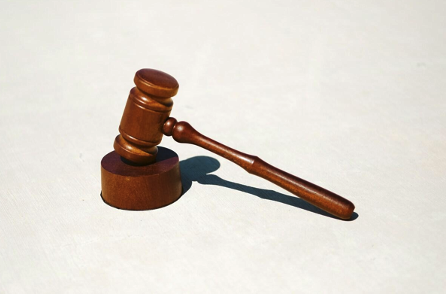Did you know that thousands of deaths occur each year due to negligence and carelessness? With such a high incidence rate, it’s crucial for you to understand the complexities of these lawsuits.
Wrongful death claims aren’t just about the death itself, but they also encompass survivorship actions and even workers’ compensation benefits.
It gets even more intricate when you consider the role of wrongful death lawyers and the difference between criminal and civil cases. As you can see, there’s more to this topic than meets the eye, so let’s dive in and explore further.
Source: Unsplash
What is a Wrongful Death Lawsuit?
You might be able to sue someone for wrongful death if they passed away due to the carelessness, willful actions, or negligence of another party. This remedy is available in New York and consists of filing a civil lawsuit against the person responsible for the death.
A wrongful death claim emerges from various situations, such as car accidents, medical malpractice, or workplace fatalities. You’re not just seeking justice here; you’re asserting the value of your loved one’s life, and the loss your family has suffered.
If your loved one had not passed away, courts may grant damages to you and your family in order to improve your financial status. These losses might consist of missed income, burial fees, and medical bills. They also consider non-financial aspects like the deceased’s agony and suffering before passing away and the loss of friendship.
Legal Actions in Wrongful Death Cases
While understanding the concept of a wrongful death lawsuit is important, it’s equally vital to know about the specific legal actions that can be taken in these cases in New York. Two types of legal actions you can take are wrongful death actions and survivorship actions.
In a wrongful death action, you’re claiming for the financial losses suffered by the distributees (those entitled to inherit the deceased’s estate). The damages awarded are based on tangible losses, like lost earnings and support, and are directly distributed to the distributees.
Survivorship actions, on the other hand, are filed to recover pre-death losses, such as medical bills and pain suffered by the deceased. The victim’s will or intestacy laws determine how the damages are allocated when they become a part of the victim’s estate.
Wrongful Death and Workers’ Compensation
In the unfortunate event of a wrongful death in the workplace, it’s crucial to understand that New York workers’ compensation provides benefits for such fatalities, regardless of who’s at fault. This compensation is intended to support surviving dependents, helping you bridge the financial gap that the sudden loss of a loved one creates.
Usually, the benefits pay for a decent funeral as well as survivor benefits for the spouse and small children of the deceased. These advantages can be a lifesaver at a trying and emotionally taxing moment.
However, it’s important to note that these benefits are exclusive to employees, not independent contractors.
You may find it useful to talk with a lawyer who can assist you in navigating these intricacies and ensuring that you obtain the recompense you deserve.
Criminal Vs. Civil Wrongful Death Cases
Beyond understanding workers’ compensation benefits in the event of a workplace fatality, it’s also important to distinguish between criminal and civil wrongful death cases.
Criminal cases are initiated by the state, and if the defendant is found guilty, they’re often subjected to penalties like imprisonment or fines. On the contrary, civil cases are initiated by the victim’s family or estate, seeking financial compensation for their loss.
In a criminal case, the burden of proof is higher. The prosecutor must prove beyond a reasonable doubt that the defendant is guilty. In contrast, civil cases require a lower burden of proof. You only need to prove, by a preponderance of the evidence, that the defendant’s negligence or intentional act caused the death.
It is vital to remember that these scenarios might occur simultaneously. Following a wrongful death, a defendant may face criminal prosecution as well as a civil case. However, the results of these trials are separate; a not-guilty finding in a criminal case doesn’t prohibit a successful civil suit.
Role of a Wrongful Death Lawyer
Navigating through the different aspects of a wrongful death lawsuit, you’ll find the counsel of a knowledgeable lawyer vital. They’re not simply legal counselors; they become your champions, your confidants. They endeavor to comprehend your specific situation, the severity of your grief, and work diligently to seek justice for your loved one.
Wrongful death lawyers wear many hats.
Firstly, they give a complete study of your case, ensuring sure you fully know the rights you have and the potential results. Then they carefully gather and evaluate information, develop a persuasive case, and bargain with insurance companies on your behalf.
These layers are your voice in the courtroom, articulating your case with eloquence and conviction. They navigate the complex legal landscape, ensuring every legal avenue is explored to maximize your compensation.
They also work on a contingency fee basis. This means you don’t pay unless they win your case. Their payment is a percentage of your settlement, ensuring they’re as invested in your victory as you are.
Conclusion
Understanding the intricacies of these cases can make all the difference for grieving families. It’s crucial to have a lawyer to navigate the system and advocate for your rights. Remember, it’s not just about financial compensation, but also about seeking justice for your loved one.
So, educate yourself, and don’t be afraid to hire the best wrongful death lawyer from New York to fight for what you deserve.







